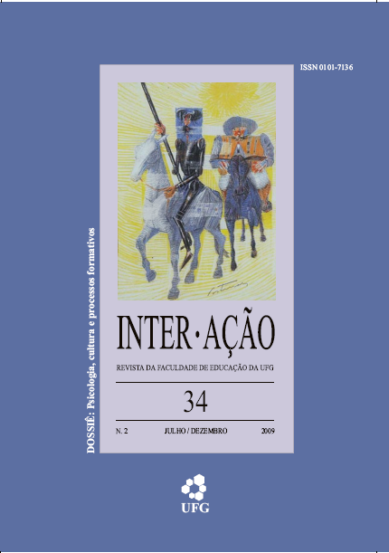CIVILIZATION AND DESTRUCTIVITY: A READING OF FREUD’S CULTURAL TEXTS
DOI:
https://doi.org/10.5216/ia.v34i2.8500Abstract
The study investigates the nature of people’s hostility to civilization, using as a basis Freud’s interpretations presented in some of his texts, generally known as cultural texts. His 1915 Reflections on War and Death, his 1921 Group Psychology and the Analysis of the Ego, his 1927 The future of an illusion and his 1929 Civilization and its discontents were analyzed. The central thesis is that this hostility is associated with the repressive nature of civilization, whose basis is the cultural idealization, on which rests the mismatch between the technical and human development and the social and personal development, which characterize the civilization examined by the author.Downloads
Downloads
Published
How to Cite
Issue
Section
License
Inter-Ação uses the Creative Commons Attribution 4.0 License for Open Access Journals (Open Archives Initiative - OAI) as the basis for the transfer of rights. Open access means making documents available on the Internet free of charge, so that users can read, download, copy, distribute, print, search, or link to the full text of documents, process them for indexing, use them as input data for software programs, or use them for any other lawful purpose, without financial, legal, or technical barriers.
Authors publishing in this journal agree to the following conditions:
1) Authors retain copyright and grant the journal the right of first publication, with the work simultaneously licensed under the Creative Commons Attribution License, which permits redistribution of the work with attribution and first publication in this journal.
2) Authors are permitted to enter into additional, separate agreements for non-exclusive distribution of the version of the work published in this journal (e.g., for publication in an institutional repository or as a book chapter), with attribution and first publication in this journal.
3) Authors are permitted and encouraged to publish and distribute their work online (e.g. in institutional repositories or on their home page) at any time before or during the editorial process, as this may generate productive changes as well as increase the impact and citation of the published work.















